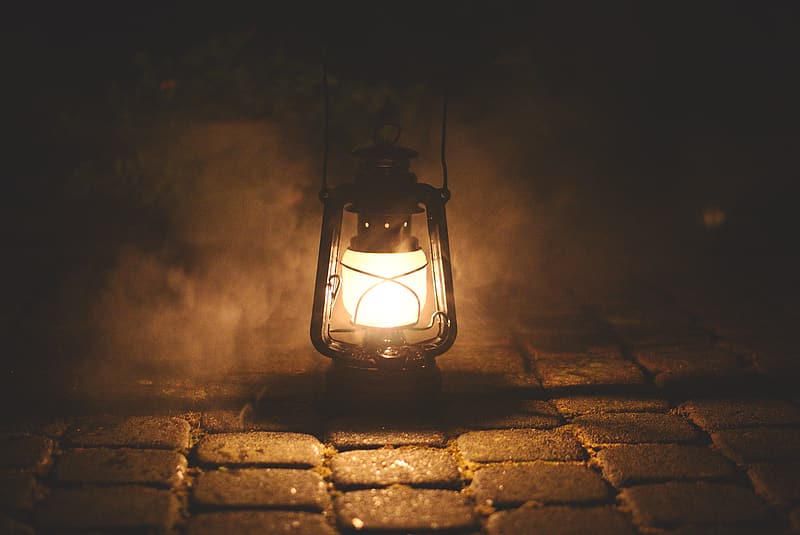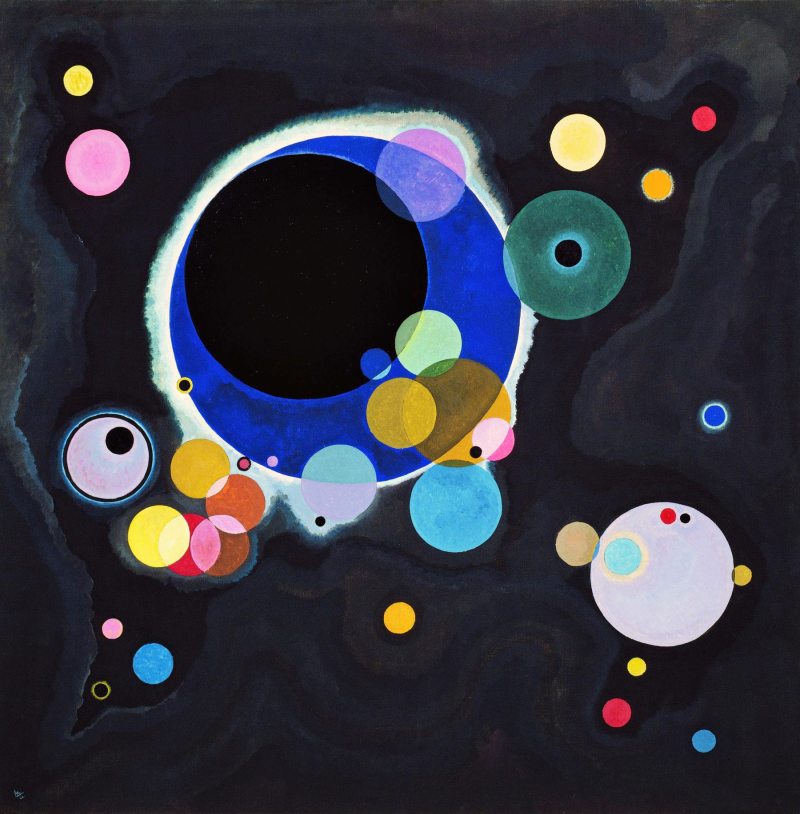Two recent articles by our columnists stake out competing views on “ego” — on one’s sense of self and the value and danger of different ways of conceiving of it. Kamil Aftyka, in his article “A defense of big ego,” writes that if he denies that any part of himself is truly distinct from others, then by “denying one’s ego, I decide I am not free and thus I follow whatever is the most dominant fashion in my circles.” In the “confessional mode” of existence he advocates, “I recollect my actions, judge them, try to better them in the future.” And, importantly, “the center of such confession is always my own ego. I need to know myself, recognize my desires and sense my destiny.”
In “The Pitfall of the Narrative Self,” Hannah Kim takes on an idea closely related to ego, the “narrative self.” She argues that seeing one’s life as a story, and in particular placing oneself at the center of one’s story, may not be the best way to live. She gives the example of the confirmation of Brett Kavanaugh, in which the nominee turned a sexual assault allegation into “an exercise of perseverance, proof that he’s not a quitter.” When one is “focused on one’s own trajectory,” she asks, “how do we make room for others? Using an autobiographical narrative as the lens through which we experience the world can’t encourage empathetic recognition of others.”
Are these two perspectives opposed? Why should we conceive of our lives in one way rather than the other? We discuss below.
Adrian: Hannah, what is the biggest pitfall of the narrative self? And Kamil, what is the biggest danger of denying one’s ego?
Hannah: I think the biggest pitfall of the narrative self is that the self becomes both narrator and protagonist — the narrative focus is on oneself, and I think this attention on oneself is what blinds us to a lot of other things worth our attention.
Kamil: The danger of denying one’s ego is reaching, on the one hand, a conviction that one cannot be responsible for their action and on the other hand, a sense that one does not matter, which makes one “live mechanically a life that is a repetition of repetitions,” but also a life in which one does not even care whether they are exploited or mistreated.
Adrian: Hannah, you write that “the problem with a narrative understanding of self is that it puts this ego at the front and center of the way we understand ourselves and our lives.” But what if I put myself in the scheme of a larger story and find meaning in a narrative that doesn’t involve me as its center? Would this be an acceptable narrative, and does it not still require a sense of self?
Hannah: I agree that narrativity as such doesn’t need to be problematic. We can tell stories in ways that don’t focus on the self, and that would be an improvement. Still, I wonder if something problematic lurks when one uses a first-person narrative to understand selfhood. Why think we’re the best authority on deciding/finding out who we are? Self-deception is real, and there’s a Korean saying that it’s darkest right under a lamp (등잔 밑이 어둡다). Sometimes we need distance to see things clearly. Maybe listening to the stories your family and friends can tell about you would be a more reliable guide to self-understanding?

Adrian: Perhaps there is a problem not in the existence or nonexistence of a sense of self, but rather whether the self is centered or decentered in one’s mind. After all, we don’t dislike egotistical people because they have a sense of self, but because they are self-centered. Kamil, what would you say to the notion that one ought to have a sense of self, but that the self should not be the center of one’s conception of the world?
Kamil: Yes and no. Of course, my lover, my friend, the society and God are in the actual center of my world — I would be ready to sacrifice my life for them! But I am, in my conception and existentially, the pillar of this center, for they are the actual center of my world, which as mine is a function of my ego. To seriously and consistently care about that which is beyond me, I must be developing my own ego. But developing oneself is different from just telling stories about oneself. I proposed the more old-fashioned confessions, an ethical concept, not formulating narratives, a non-ethical concept, to be the center of one’s existence as an ego.
Adrian: I’ve described above the confessional mode that Kamil advocates. But perhaps this still tells some sort of story: one of ethical development. Hannah: Is this still a story, and is it different, and perhaps better, then your example of Kavanaugh’s story of triumph against adversities?
Hannah: Yes, it does sound like a story, and ethical development is important, but I see two problems: Sometimes what we think is “right” is to the detriment to others (the Kavanaugh case fits here, I think), and it all boils down to why one wants to be ethical. Is it because one wants to be an ethical person? That’s less ideal than simply being drawn to the ethical in virtue of their inherent value. (Do you want your friend to visit when you’re sick because they care about you, or because they want to be the kind of friend who does such things?)
Adrian: Kamil, what is your take on Hannah’s suggestion that it is better to be drawn to the ethical in virtue of its inherent value, rather than trying to develop oneself as an ethical person?
Kamil: There is no need to choose between the two. If I genuinely want to be an ethical person, I do not do it to be viewed as a fine person, but because I see value in being ethical for the sake of it. But also, the other way around: If our love for the ethical is to mean anything concretely, we must aim to develop our egos so that they are capable of wholehearted and consistent realization of the right ethical ideals. In Polish, we also have a lamp saying, but despite the lamp’s limitations, I choose not to turn it off, but increase its lightness.
Adrian: Perhaps we’re hitting upon a disagreement over what it takes to be a genuinely ethical person. Hannah, do you have thoughts on Kamil’s insistence that it’s possible to develop “good ego,” and that it might even be necessary for a truly ethical life?
Hannah: If we can understand ourselves without insisting on our first-person perspectives all the time, I think we can develop the kind of healthy ego that Kamil is after. But there’s also the fact that not everyone is equally equipped to “define” themselves because not everyone’s stories about themselves are taken up by others. Being close to multiracial individuals really opened my eyes to the fact that people assume (i.e. tell themselves) all sorts of histories/stories about individuals they have difficulty placing. Oppressed people suffer from other people’s “stories” about them. It seems unhelpful to champion a mode of selfhood and self-understanding that is only available to the privileged.
Adrian: Kamil, connecting to Hannah’s point about privilege, a few last words from you: Is the value of developing a healthy ego undermined if it is only available to a lucky few?
Kamil: Take away most extreme cases of oppression, developing a good big ego is difficult especially for those coming from privileged socioeconomic backgrounds. To express this with religious pathos: “it is easier for a camel to go through the eye of a needle than for a rich man to enter the kingdom of God.” The rationalization for it is that one can develop a great ego only once one recognizes they are in principle equal to everyone and thus infinitely free. This ultimate equality is especially easy to observe by the socioeconomically underprivileged.
Adrian: We must wrap up — Hannah, you ended your article discussing the idea of “modesty,” and I want to end here, as well, with this. Why is this a more appealing concept to you than the idea of narratives?
Hannah: I like understanding modesty as simply coming to care less about how one is or how one compares to others (perhaps even compared to one’s past self). As Nic Bommarito writes, modesty, and the lack of self-focus it brings, allows us to appreciate the world (and even ourselves!) without making it about us. Of course, for those who need to learn how to think for/about themselves more, modesty might not be the best virtue to focus on. But for those who feel pressure to tell, or be able to tell, grandiose stories about themselves, modesty seems like a promising antidote.
The Daily is committed to publishing a diversity of op-eds and letters to the editor. We’d love to hear your thoughts. Email letters to the editor to eic ‘at’ stanforddaily.com and op-ed submissions to opinions ‘at’ stanforddaily.com.
